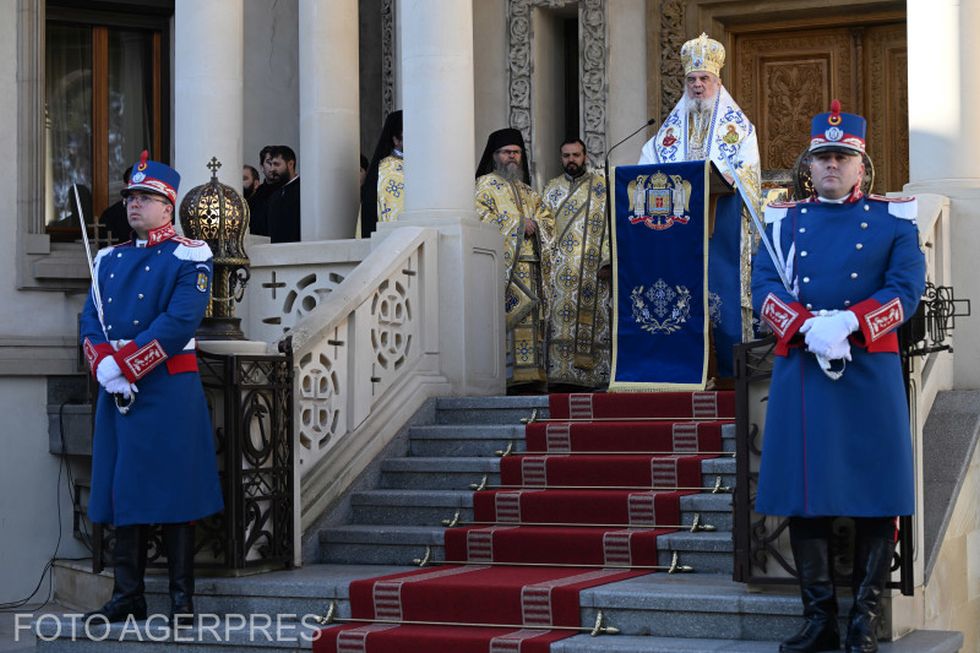The trials and tribulations of The Union Act of December 1st, 1918
Eugenics, race and reshaping Central and Eastern Europe in post-World War One Era

Steliu Lambru, 06.12.2021, 14:00
Transylvanias union with Romania received votes in favour from 1,228 delegates. They were assembled in Alba Iulia, in central Transylvania, on December 1st, 1918. At the end of World War One, the national idea galvanized the Zeitgeist, so the Union was an act of free will accomplished by the Romanians living in the Carpathian basin. December 1st officially became the National Day of Romania after the collapse of the communist regime on December 22nd, 1989. After this date, historical debates have become free, so the accomplishment of December 1st, 1918, was emphatically broached from a geo-political perspective. However, at that time, other categories of ideas were no less relevant, for example, the ideas of eugenics and race. The two concepts were issues included in Hungarys dossier, compiled to support Hungarys defending its own standpoint during the peace treaties of 1919-1920.
Historian Marius Turda teaches the History of medicine at Oxford Brookes University. Dr Turda is the author of an appreciable number of books and research articles on eugenics and race. Marius Turda detailed the concepts of eugenics and race underpinning the Hungarian standpoint.
Marius Turda.:
“The Hungarian eugenics and racial thought was quite advanced ahead of World War One. Many prominent Hungarian politicians as well as those who somehow contributed to the talks of the Peace Congress were noted eugenicists. They had their own contribution as to what Hungary had to offer, race-wise, for the stability in the region, as to why eugenics was important for the survival of the Hungarian nation in the region, demographically, culturally, as well as economically. The entire discussion they initiated revolved around a couple of key topics, in the hopes that they will persuade the Great Powers to keep Hungarys territorial integrity intact.”
The eugenic and racial ideas emerged in the second half of the 19th century. Those ideas became very popular in the USA, Great Britain, Germany, France and in the Central-European area. At that time, a widely-circulated concept was that of “biopolitics”, pertaining to political thought based on biological principles. Dr Marius Turda has detailed how the Hungarian dossier attempted to raise the winning powers awareness, resorting to the eugenic and racial reasoning.
Marius Turda:
“Count Teleki Pal, one of the main promoters of the eugenic trend, and president of the Hungarian Society for Racial Hygiene and the Study of Population, dispatched letters to presidents of Eugenics societies worldwide, as well as to the president of the British Eugenics Society, Leonard Darwin, Charles Darwins son. Telekis attempted reasoning focused on why the British Eugenics Society had to promote and fight for the preservation of Hungarys national integrity. From one empire to the next, stated Teleki, if we take Transylvania into account, the entire class of intellectuals is Hungarian. But if we target the intellectual class in Transylvania and have it relocated, two things are going to happen. First off, Transylvania will be deprived of a cultural, political and economic elite in its own right. Secondly, the city of Budapest and Hungary will be overpopulated, and that will also trigger a lodging and living space crisis. “.
The confrontation between the Hungarian and Romanian dossiers was uncompromisingly sorted out in favour of the population majority claim, promoted by Romania. According to Marius Turda, we cannot speak about a failure of the eugenic claim, but rather about the whole range of ideas being interpreted and included in one single decision.
Marius Turda:
“The demographic superiority claim in Transylvania was much more important than the fact that the eugenic outcome of the dismantling of the Hungarian state would have had its aftermath. The fact that the Romanians were the majority population in Transylvania counted more during the political talks than what would happen to Transylvania after it became part of Romania, what they would lose, culturally, and how many of the biological qualities were to be lost, of the population living there. We cannot speak about a failure, but about prioritising and about which of the two levels of reasoning would prevail in the confrontation. The ethnographic talks on Transylvania during the peace treaties were to a great extent based on the claim that the Romanians were the majority population. The racial failure was rather more visible here. All those claims several Hungarian racists put forward, instead of pursuing the path of ethnic symbiosis and mutual interest, they opted for a much more categorical separation of the populations.”
Marius Turda puzzled us out as to whether Romania counteracted Hungarys claims also resorting to a eugenic and racial reasoning.
Marius Turda:
“Romania did not have a eugenic reasoning in its own right, but it did have a racial, ethnographic and demographic set of arguments, which mattered a lot. The entire debate on ethnic groups and the importance of a certain ethnic group in a region had been initiated by people who were very well-read in physical anthropology. The kept themselves abreast of the race debates, were speaking about such thinkers as Aurel C. Popovici and Alexandru Vaida-Voevod, debates related to the racial qualities of a certain ethnic group. All those ideas greatly mattered, regarding the emergence of a certain opinion trend on the vitality of the Romanian nation in Transylvania, on its racial importance, even though the reasoning for all that was rather demographical. As for the eugenics claims like those put forwards by the Hungarian delegation, they did not exist as part of the Romanian delegations set of arguments or the Romanian campaigns abroad, carried to promote Transylvanias unification with Romania.”
The making of Greater Romania was something hard to come by, for all our being tempted to think otherwise. The confrontation was really strong, between the eugenic and racial set of arguments and those pertaining to the demographic majority criterium. Romanias set of arguments prevailed, since Romania was part of the alliance bringing together France, Great Britain and the USA.
(Translation by Eugen Nasta)






























